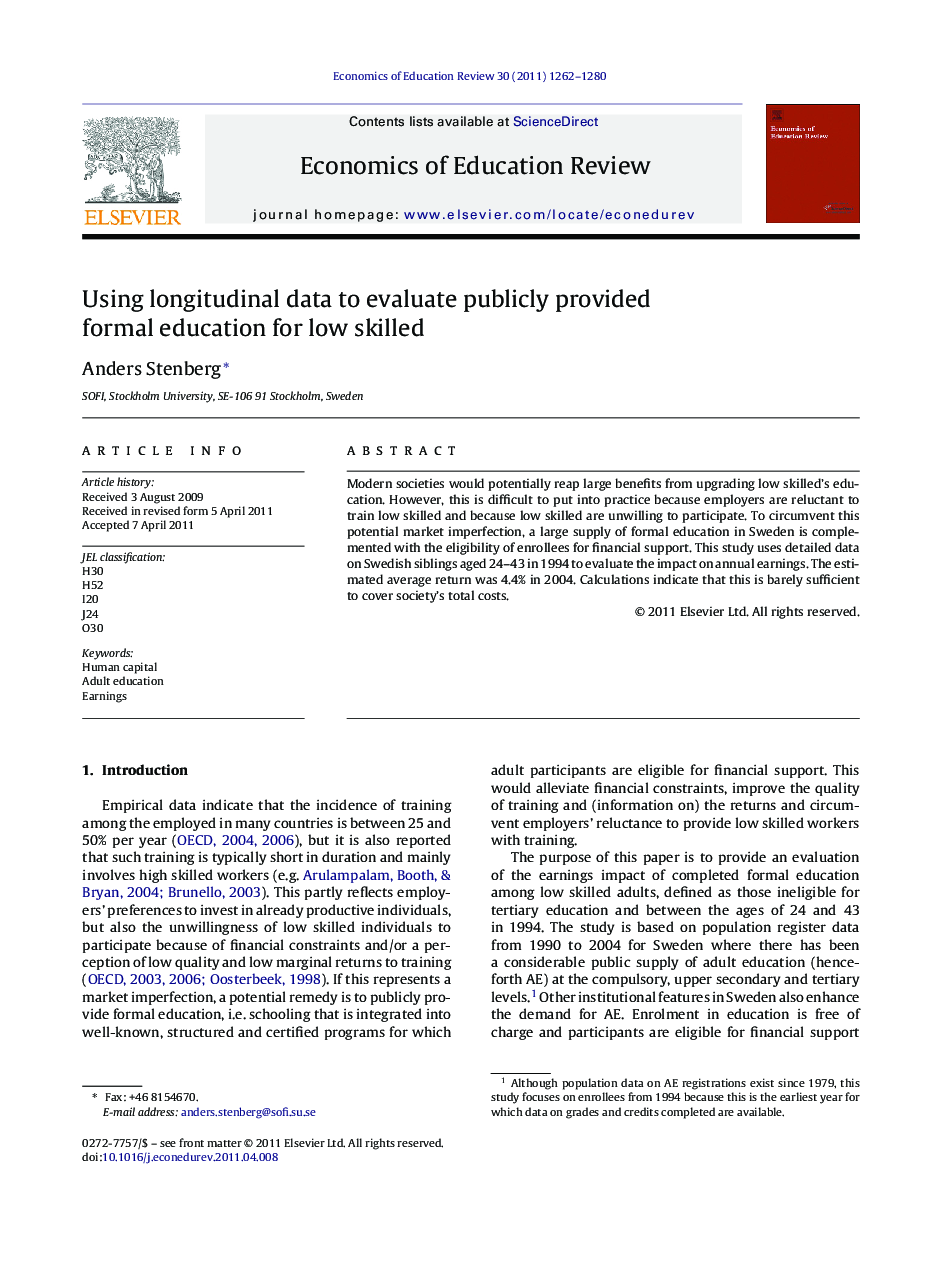| Article ID | Journal | Published Year | Pages | File Type |
|---|---|---|---|---|
| 354522 | Economics of Education Review | 2011 | 19 Pages |
Modern societies would potentially reap large benefits from upgrading low skilled's education. However, this is difficult to put into practice because employers are reluctant to train low skilled and because low skilled are unwilling to participate. To circumvent this potential market imperfection, a large supply of formal education in Sweden is complemented with the eligibility of enrollees for financial support. This study uses detailed data on Swedish siblings aged 24–43 in 1994 to evaluate the impact on annual earnings. The estimated average return was 4.4% in 2004. Calculations indicate that this is barely sufficient to cover society's total costs.
► The average earnings effects of a year of education for low skilled adults is 4.4%. ► The costs for society are large in terms of foregone production value. ► Benefits are unlikely to cover the costs unless social returns exceed private returns.
